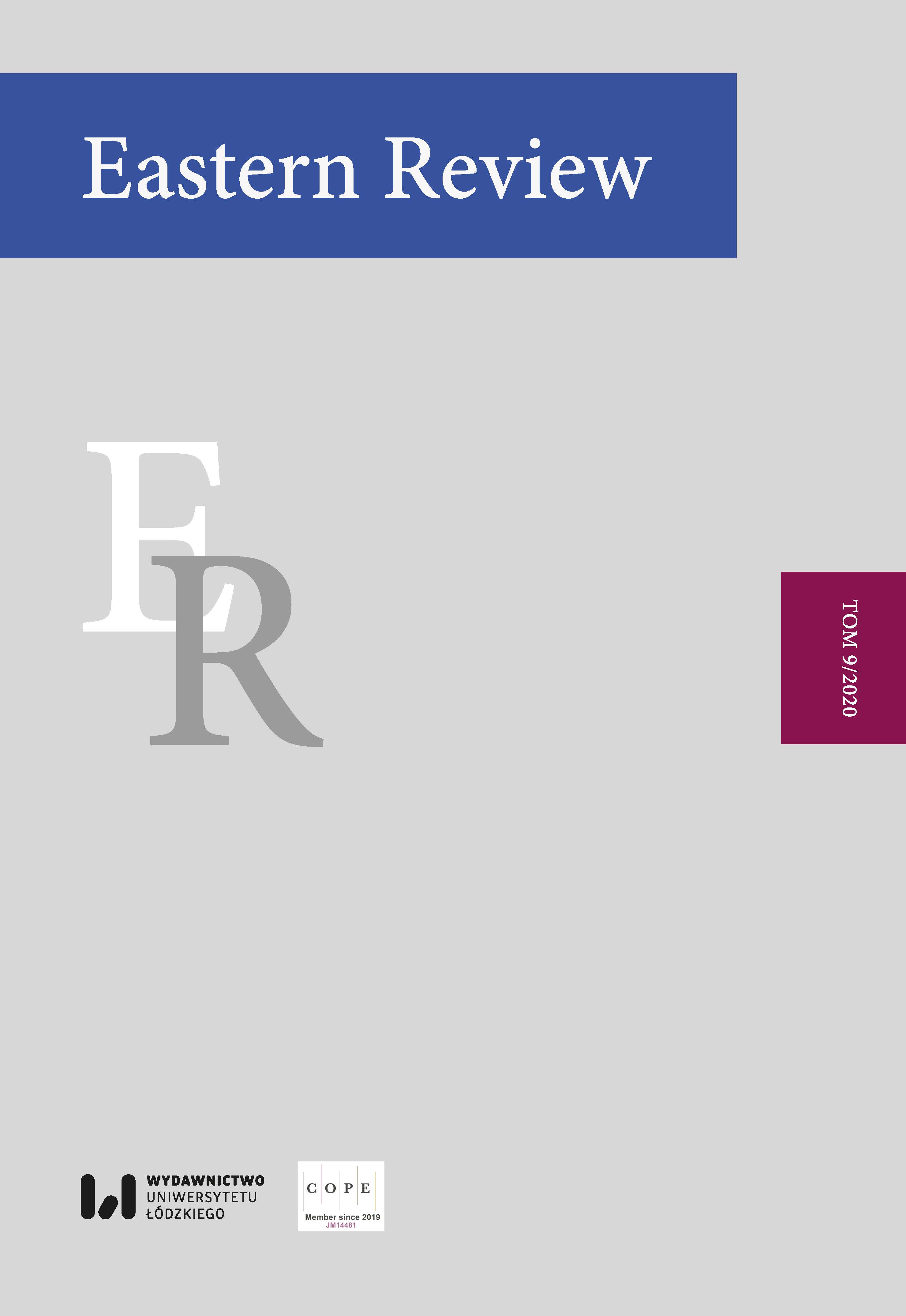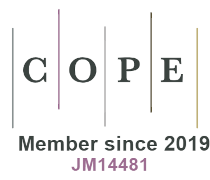The cybersecurity of Georgia and threats from Russia
DOI:
https://doi.org/10.18778/1427-9657.09.07Słowa kluczowe:
Asymmetric threat, Technological advances, Cyber war, Information war, Hybrid war, Georgia, Russia, International security, Virtual space, Global securityAbstrakt
The world is living in a state of constant psychological warfare, technological advances and development; in the 21st century Internet governance has become a puzzle for scientists and practitioners. Virtual warfare is an alternative to real warfare, one of the biggest threats to global security. In discussing the issue, we must consider the capabilities of the world’s leading countries, and first of all, identify the threat posed by Russia, which is the core of unpredictable aggression. This state is trying to influence almost the whole world with large-scale cyber-hacking attacks and continuous disinformation and fake news. Today it is difficult to find out where the theoretical war begins and where the practical military aggression ends, so new research, recommendations, scientific papers, and defence strategies are needed. Defensive mechanisms are created for cyber-attacks and this is always followed by more powerful attacks; that is why NATO enacted Article 5 of the Washington Treaty or the principle of “collective defence.” The article discusses Russia’s aggressive policy towards Georgia during and after the Russian-Georgian war in August 2008. The features of the Russian hybrid war and cyber attacks are discussed.
Bibliografia
Administration of the President of Georgia. 2013. Decree of the President of Georgia. Cyber Security of Georgia 321, pp. 1–9, https://matsne.gov.ge/ka/document/download/1923932/0/ge/pdf (accessed 8.10.2020).
Google Scholar
Agency “Independence”. 2015. Russian Information War – Strategies and Goals, p. 1. http://damoukidebloba.ge/c/news/sainformacio_omi (accessed 2.10.2020).
Google Scholar
Agency “on”. 2019. How we repelled cyber-attacks and propaganda in 2008, p. 1, https://on.ge/ (accessed 6.10.2020).
Google Scholar
CNet. 2015. Obama asks for $14 billion to step up cybersecurity. The president urges Congress to pass legislation that would strengthen the country’s hacking detection system and counterintelligence capabilities, p. 1, https://www.cnet.com/news/obama-adds-14b-to-budget-for-stepped-up-cybersecurity/ (accessed 10.10.2020).
Google Scholar
Gartner. 2018. Gartner Forecasts Worldwide Information Security Spending to Exceed $124 Billion in 2019. p. 1, https://www.gartner.com/en/newsroom/press-releases/2018-08-15-gartner-forecasts-worldwide-information-security-spending-to-exceed-124-billion-in-2019 (accessed 15.10.2020).
Google Scholar
Georgian Public Broadcaster. 2020. US, Britain and Estonia discuss Russia’s cyber-attacks against Georgia at closed-door UN Security Council meeting p. 1, https://1tv.ge/news/gaero-s-ushishroebis-sabchos-dakhurul-skhdomaze-ashsh-ma-britanetma-da-estonetma-saqartvelos-winaaghmdeg-rusetis-kibertavdaskhmebze-isaubres (accessed 17 10 2020)
Google Scholar
German newspaper Bild. 2017. German media: The Russians intended to use nuclear weapons in 2008. Retrieved from German media: The Russians intended to use nuclear weapons in 2008, p. 1, http://www.resonancedaily.com/index.php?id_rub=2&id_artc=42590 (accessed 11.10.2020).
Google Scholar
Gotsiridze, A. 2019. Cyber-dimension of the Russia-Georgia war of 2008. Cyber-dimension of the Russia-Georgia war of 2008, p. 1, https://www.gfsis.org/ge/blog/view/970 (accessed 14.10.2020).
Google Scholar
Homeland Security. 2020. Department of Homeland Security Statement on the President’s Fiscal Year 2021 Budget, p. 1, https://www.dhs.gov/news/2020/02/11/department-homeland-security-statement-president-s-fiscal-year-2021-budget (accessed 18.10.2020).
Google Scholar
Iagorashvili, I. 2019. (Statement by Sergei Lavrov) Russia’s Two Myths about the Baltic States, p. 1, https://www.mythdetector.ge/ka/myth/rusetis-2-miti-baltiispiretis-kveqnebis-shesakheb Last checked (accessed 23.10.2020).
Google Scholar
Iagorashvili, I. 2020. (Statement by Vyacheslav Molotov) Maria Zakharova denies the occupation of Estonia by the USSR. Retrieved from (Statement by Vyacheslav Molotov), p. 1, https://www.mythdetector.ge/ka/myth/maria-zakharova-ssrk-mier-estonetis-okupatsias-uarqops (accessed 23.10.2020).
Google Scholar
IDFI. 2016. Kremlin Information War against Georgia: The Necessity of State Policy to Combat Propaganda. Retrieved from Kremlin Information War against Georgia: The Necessity of State Policy to Combat Propaganda, p. 1, https://idfi.ge/ge/informational-war-of-kremlin-against-georgia-the-necessity-of-having-state-policy-against-propaganda (accessed 22.10.2020).
Google Scholar
Independent. 2017. Ukraine cyber attack: Chaos as national bank, state power provider and airport hit by hackers, Available at Russian energy firms and Danish shipping company also hit by hackers, p. 1, https://www.independent.co.uk/news/world/europe/ukraine-cyber-attack-hackers-national-bank-state-power-company-airport-rozenko-pavlo-cabinet-computers-wannacry-ransomware-a7810471.html (accessed 20.10.2020).
Google Scholar
Institute for Development of Freedom of Information. 2016. Kremlin Information War on Georgia: The Necessity of State Policy to Combat Propaganda, Available at Policy Paperm, pp. 5–33, https://idfi.ge/public/upload/Meri/Russian%2 (accessed 22.10.2020).
Google Scholar
Lewis University. 2016. THE HISTORY OF CYBER WARFARE - INFOGRAPHIC. A The New Face of War: Attacks in Cyberspace, p. 1, https://www.visualistan.com/2016/01/the-history-of-cyber-warfare-infographic_16.html (accessed 24.10.2020).
Google Scholar
Manufacturing. 2015. Report: Russian ‘Internet Trolls’ Behind Louisiana Chemical Explosion Hoax, pp. 1–9, https://www.manufacturing.net/operations/news/13099148/report-russian-internet-trolls-behind-louisiana-chemical-explosion-hoax (accessed 24.10.2020).
Google Scholar
Morgan, S. 2017. 2017 Cybercrime Report. report from Cybersecurity Ventures, p. 3, https://cybersecurityventures.com/2015-wp/wp-content/uploads/2017/10/2017-Cybercrime-Report.pdf (accessed 25.10.2020).
Google Scholar
National Academies Press. n.d. 7 Development of the Internet and the World Wide, pp. 169–182, Available at Funding a Revolution: Government Support for Computing Research (1999), https://www.nap.edu/read/6323/chapter/9 (accessed 26.10.2020).
Google Scholar
NATO. 2018. Brussels Summit Declaration. Retrieved from Issued by the Heads of State and Government participating in the meeting of the North Atlantic Council in Brussels, p. 1, https://www.nato.int/cps/en/natohq/official_texts_156624.htm (accessed 26.10.2020).
Google Scholar
Resolution of the Government of Georgia № 14. 2017. On the Approval of the National Cyber Security Strategy of Georgia for 2017–2018 and its Action Plan, pp. 6–7, http://gov.ge/files/469_59439_212523_14.pdf (accessed 28.10.2020).
Google Scholar
Reuters. 2014. France to invest 1 billion euros to update cyber defences, p. 1, https://www.reuters.com/article/france-cyberdefence-idUSL5N0LC21G20140207 (accessed 27.10.2020).
Google Scholar
RIAC. 2016. NATO’s Cyber Defense Evolution. NATO’s New Digital Wall, p. 1, https://www.nato.int/docu/rdr-gde-prg/rdr-gde-prg-eng.pdf (accessed 27.10.2020).
Google Scholar
Russian National Security Strategy. 2015. EDICT OF THE RUSSIAN FEDERATION PRESIDENT. Retrieved from On the Russian Federation’s National Security Strategy, pp. 1–4, http://www.ieee.es/Galerias/fichero/OtrasPublicaciones/Internacional/2016/Russian-National-Security-Strategy-31Dec2015.pdf (accessed 28.10.2020).
Google Scholar
United States of America. 2017, december. National Security Strategy, pp. 1–2, https://templatelab.com/national-security-strategy-final/ (accessed 29.10.2020).
Google Scholar
The Washington Post. 2018. The Pentagon has acknowledged that in the event of a Russian invasion, it will not be able to defend the Baltic states and Poland, p. 1, https://imedinews.ge/ge/msoflio/67383/pentagonma-agiara (accessed 29.10.2020).
Google Scholar
Pobrania
Opublikowane
Jak cytować
Numer
Dział
Licencja

Utwór dostępny jest na licencji Creative Commons Uznanie autorstwa – Użycie niekomercyjne – Bez utworów zależnych 4.0 Międzynarodowe.










